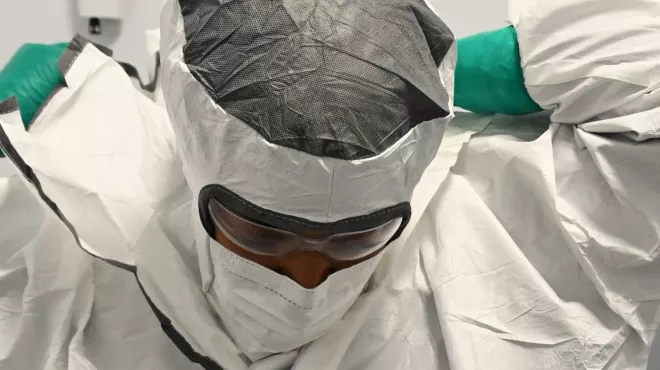
The clinical research process is the backbone of innovation in cancer care. But what does clinical research entail? A lot of people may immediately think of scientists in a lab, pipetting different solutions into test tubes in the search for some type of cure. In reality, the clinical research ecosystem is a complex network of laboratories, academic research centers, clinical trial sites and more.
This week (May 1-5) is Clinical Trials Awareness Week, an annual observance organized by the Coalition for Clinical Trials Awareness that is dedicated to fostering dialogue about the importance of clinical trials awareness for patients. To help mark this occasion, we’ll be joining the global community to talk about one of this year’s themes: the importance of technology in clinical trials.
To talk about how technology can improve the oncology clinical trial process, it’s helpful to have some background on how oncology clinical trials are unique and how technology can help address some of the complexities involved in a cancer diagnosis. First and foremost, trial enrollment is low; only 3% of adult cancer patients enroll in clinical trials.1 This is partly due to the fact that people have common misconceptions about cancer and cancer trials – including that trials are a last-resort option. This claim isn't true. In reality, clinical trials are an exploratory option for patients at many different disease stages.
Second, the game has changed. Gone are the days of a “one-size-fits-all” chemotherapy approach to cancer treatment. A thorough understanding of one’s genomic profile may be key to finding an effective treatment that is tailored to each person’s cancer.
A third fact to keep in mind is that patients with advanced cancer diagnoses don’t have time to wait to find a clinical trial. The process moves at a fast pace, and patients, caregivers and researchers must be prepared to make decisions quickly.
Novartis is using technology to improve the clinical trial process and, ultimately, patient outcomes
It’s important to note that there are potential risks associated with clinical trials. For example, an investigational treatment may not be effective or may be less effective than current treatments. There could also be serious or dangerous side effects that are not yet known. Therefore, patients should discuss the potential risks and benefits with their physicians to determine if a clinical trial is an appropriate treatment option.
Novartis is using technology to improve the clinical trial process and, ultimately, patient outcomes. We are taking a threefold approach that includes:
- Distributing key information online to improve awareness and education
We are using social media to share information with patients, caregivers, researchers and more in an easily digestible format (check out @NovartisOncCT on Twitter and NovartisOncCT on Facebook for more about our US trials). At the same time, we are working to debunk common myths. - Encouraging patients to take greater control of their health and undergo genetic profiling
We are arming patients with information about their cancer to help them make important decisions. We are also strengthening the database of genetic information so researchers can gain insights into cancer types and what might be an effective treatment. We are continuing conversations at important patient gatherings and medical meetings to discuss the latest in genomic data, immuno-oncology, real-world patient outcomes and evidence-based guidelines. - Capitalizing on the rapid evolution of technology and data sharing to better match patients to trials
We are creating avenues of communication through which patients can share their experiences; we strongly believe that their input can help inform the design of clinical trial protocols and outcomes.



